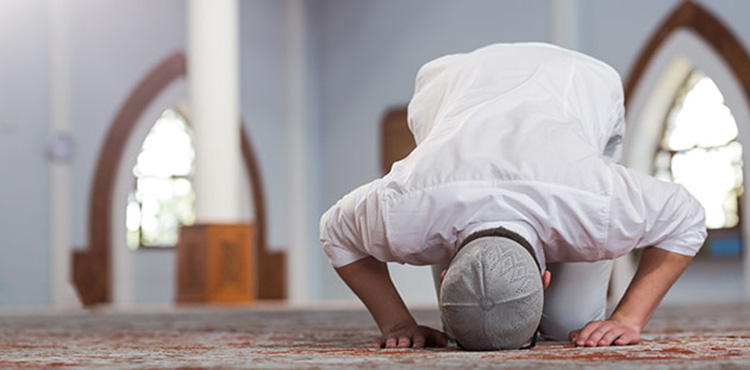The United Ulama Council of South Africa (UUCSA) has defended its position to close all masajid as South Africa deals with a global coronavirus of epic proportions. In a simulcast discussion on VOC this morning, UUCSA said the Shariah holds human life in the highest esteem. There’s been a backlash from some quarters for mosques to be re-opened, with the argument that the lockdown is adversely impacting on the spirituality of Muslims.
Earlier, this week, two Islamic organisations – the Majlisul Ulama and Jamiatul Ulama – submitted a legal letter asking the president to make a concession.
But several other organisations such as the Islamic Medical Association and the SA Muslim Network have written a counter letter, stating that these organisations represent a minute fraction of the total mosques in SA. These groupings say the vast majority of mosques have complied with the initial restrictions and lockdown provisions of government and will continue to abide by the law of the land.
Representing the two fringe groups, Advocate Zehir Omar argued that if taxis, spaza shops and supermarkets can operate, masajid should be allowed to open.
But Maulana Taha Karaan, the mufti of the Muslim Judicial Council (MJC) says this is a futile argument.
“This argument is rooted in the fact that everyone should be treated equally. But in what spirit did we take these steps? There are two approaches, one in terms of civil rights…that we should be treated equally as other citizens….
“But this not the time to be focusing on rights, but rather on the responsibilities to society. Our civic duty is to the rest of society. There is a time for that…but now is not that time. Now we have to look at our responsibility to society at large, and if we look at things from that perspective, then we don’t need a government to tell us what to do,” said Maulana Karaan.
Karaan described the ‘Whataboutism’ argument as “petulant”.
“The argument of why I should do what’s right when someone else is doing what’s wrong. We should recognise that at a time like this, a certain form of behaviour is not conducive to society. But a certain behaviour is for the betterment of society and we as Muslims should already have known this.”
The ulema’s decision to suspend prayer at the masjid in fact preceded the decision by the government for all gatherings more than 100 people to be banned. Jamiatul Ulama South Africa secretary general Maulana Ebrahim Bham said the ulema body made this decision, in line with a similar position taken by the majority of scholars around the globe.
“Would the Darul Uloom Deoband, who have also called people to respect the lockdown in India, be considered as not having love for the masjid. What about the entire consensus of the UK ulema?”
“It’s a well-known fact that in a time of torrential rain, the Nabi Muhammad SAW said people should read at home. Is this due to the closure of the masjid or because of a circumstance? There is no doubt, there the closure of our masajid now is because of a particular circumstance.”
Dr Zameer Brey, the chair of the Groote Schuur Hospital Board, also weighed into the debate.“We need to see this as a test from Allah SWT. But we also need to see this as an opportunity to be part of the solution, rather than part of the problem,” he stated.
Dr Brey pointed to examples in South Korea and Malaysia where faith-based gatherings had been the catalyst for thousands of coronavirus infections.
“If you were that person that decided to disobey the lockdown to arrange a Jumuah in congregation that led to someone being infected…what happens if someone dies?”
From a medical rationale, Dr Brey argued that we should not be fooled by the low infection rate in South Africa.
“We are seeing countries like and Italy, Spain and the US overwhelmed because they did not take the pandemic seriously enough and did not put measures in place fast enough. Infections in these countries doubled every two days. From my calculations, if we continued as normal, if we had 2000 infections today, within 27 days, 1 million South Africans could be infected,” he argued.
The view that during this time of crisis, the masjid serves as an essential therapy for the soul, is short-sighted.
“Spiritual nourishment does not only take place in salaah and the masjid. It also takes place in isolation and in the home,” said Maulana Karaan.
Dr Brey said medical experts had engaged the Ulama to take the decision and it was debated extensively. The masjid, and all religious placed of worship, are concerned a risk factor, due to the confinement of people in a small space.
“It’s not about the individuals being clean. There are areas in the masjid, like the mats and taps that are sometimes not clean. We should respect the law. While the masjid can be sanitised, there is still a risk that the individual can come into contact with the virus. To disregard the thought process and the decisions the ulama have taken is the wrong thing.”
LISTEN:






 WhatsApp us
WhatsApp us 

